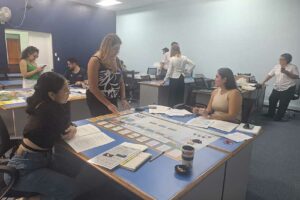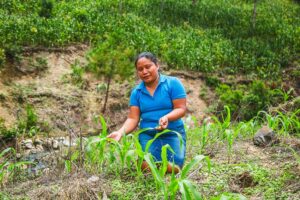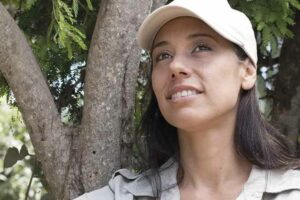Entrepreneurs from the first ADAPT-ACTIVA call share experiences
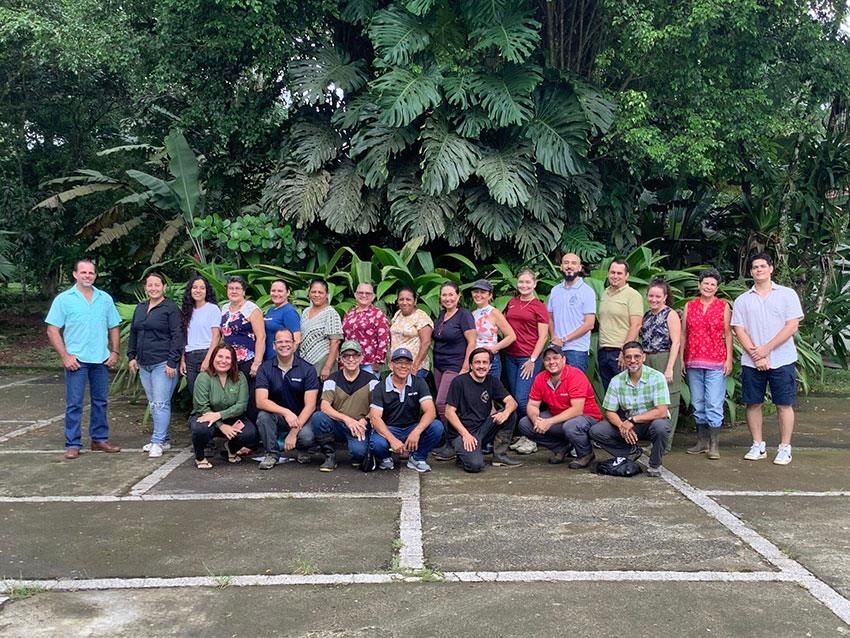
- Selected entrepreneurs in the first call for seed capital resources participated in a tour to learn about innovative initiatives.
The regional program Scaling up Ecosystem-based Adaptation (EbA) measures in rural Latin America (EbA LAC) brought together 23 entrepreneurs from northern Costa Rica for a two-day encounter on July 17-18, 2024, as part of the activities to support the incubation of their rural enterprises that adopt and implement EbA measures in their productive units.
These ventures were selected at the end of 2023 in the first call for seed capital resources provided by the Development Banking System (SBD), called ADAPT-ACTIVA, organized by ACTIVA-CATIE, the innovation and entrepreneurship laboratory of the Forests and Biodiversity in Productive Landscapes Unit of CATIE (Tropical Agricultural Research and Higher Education Center).
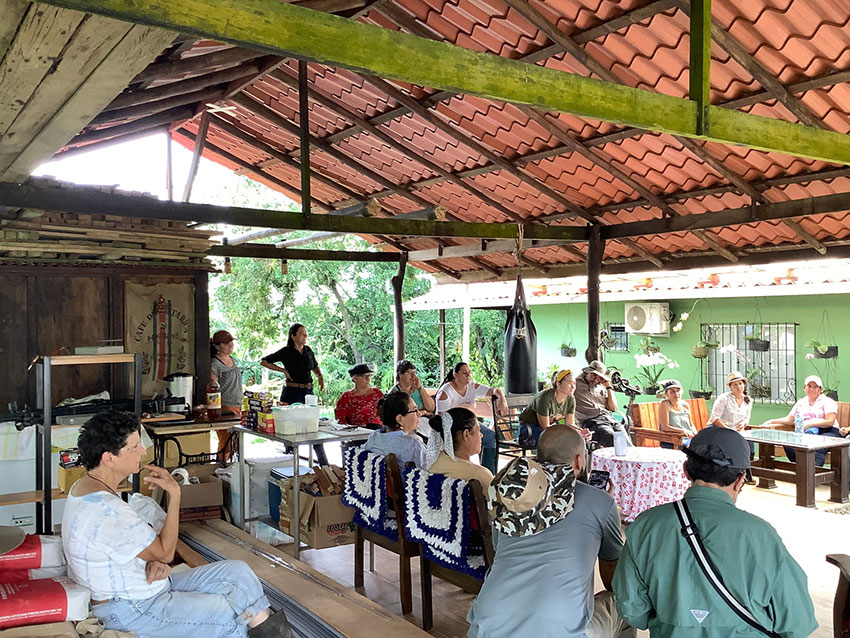
The objective of the event was to meet and exchange experiences among the different entrepreneurs, both in the field and in business practices. The activity also served to apply the new sustainable business canvas developed by ACTIVA-CATIE, allowing entrepreneurs to adjust and update their business models.
Rural innovation
Four outstanding projects in the region were visited to learn about innovative initiatives in the areas of livestock farming, agriculture, rural tourism and bio-input production, which allow better adaptation to the negative effects of climate change.
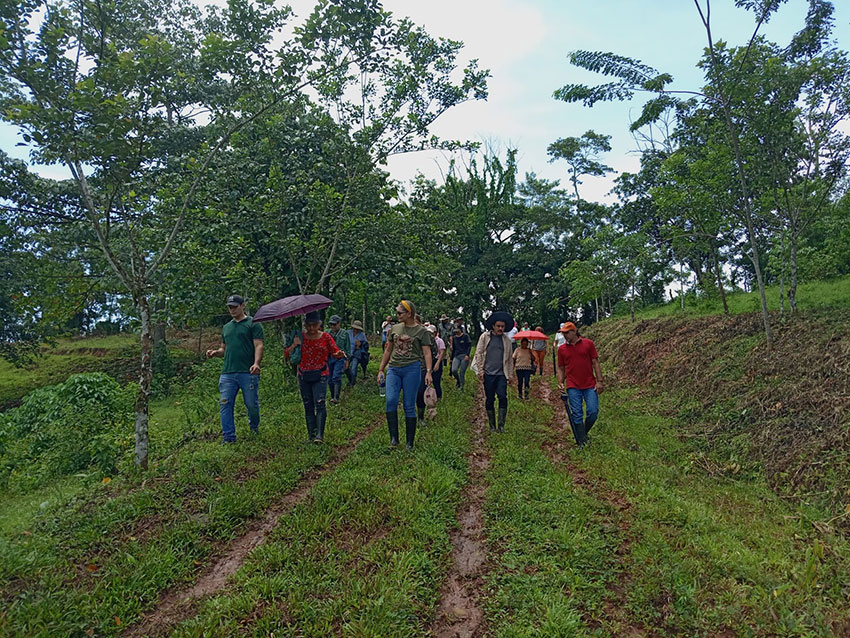
The first visit was to the Finca Integral Santa Cruz project in San Bosco de Pocosol, led by Gerardo Blanco. This livestock farm incorporates the tree component in pasture areas, achieving good productive indicators for livestock and also manages the secondary forests on the property in a sustainable manner. The day continued with a visit to the EcoGranja de Tradiciones Project in Santa María de Pocosol, headed by Pedro Blanco, a family farm that seeks to integrate agricultural, livestock and tourism activities to diversify its income and at the same time improve climate resilience. The presentation and tasting of coffee from the Finca Flor de Abril Project, led by Fernando Guerrero, was also held in this locality.
On the second day the entrepreneurs visited the Finka Horganika Project in Venecia, San Carlos, led by Yendry Bogantes, who with seed capital resources and the support of ACTIVA-CATIE has managed to build a biofactory for the production of agricultural bio-inputs.
The event closed with a group reflection on the experiences and lessons learned, concluding two days of enriching experiences and networking opportunities. networking.
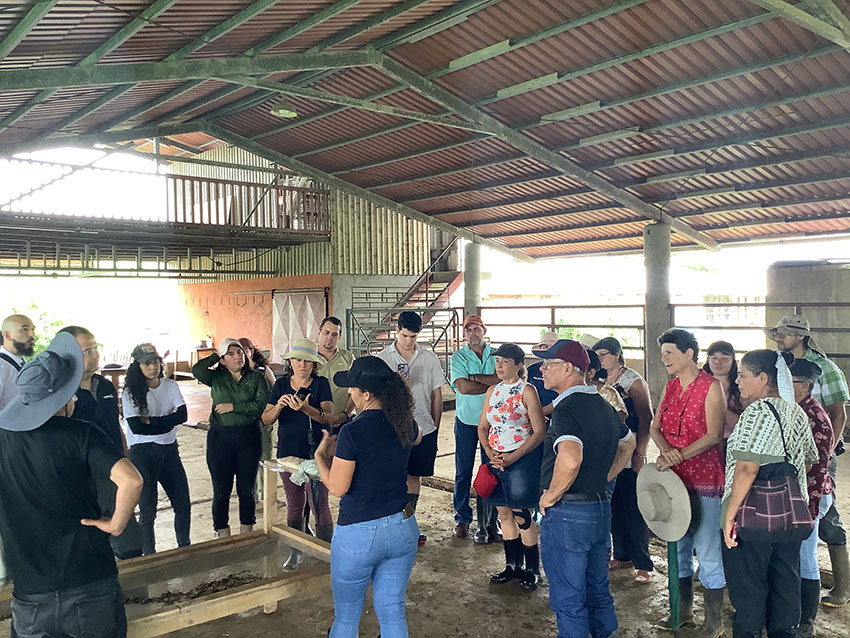
This encounter has allowed entrepreneurs to exchange knowledge and strengthen their capacities in the implementation of ecosystem-based adaptation measures, contributing to the sustainable development of the region. The ADAPT-ACTIVA call continues to demonstrate its commitment to promoting innovation and entrepreneurship in rural areas, supporting entrepreneurs with tools and resources to address climate and environmental challenges.
For more information, please visit www.ebalac.comas well as activa.catie.ac.cr for more details.
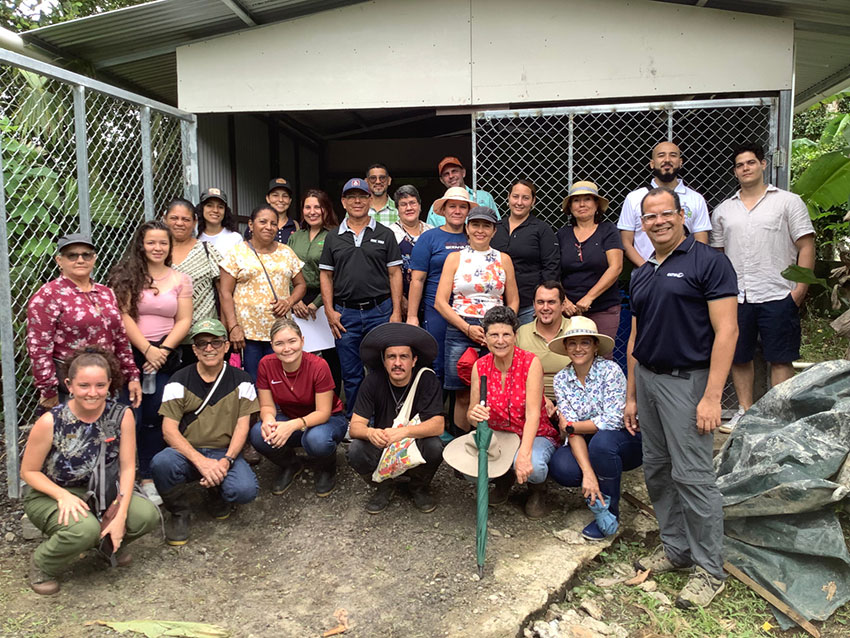
The EbA LAC program is funded by the German Federal Ministry for the Environment, Nature Conservation, Nuclear Safety and Consumer Protection (BMUV), through its International Climate Initiative (IKI) and implemented by the German Cooperation -GIZ- as lead agency, in partnership with IUCN (International Union for Conservation of Nature) and CATIE (Tropical Agricultural Research and Higher Education Center). In Costa Rica, it works in close coordination with MINAE and SINAC.
The EbA LAC program aims to increase the resilience capacity to climate change of vulnerable communities and ecosystems in rural areas of Costa Rica, Guatemala, and Ecuador.
ACTIVA-CATIE is an innovation and entrepreneurship laboratory led by the Forests and Biodiversity in Productive Landscapes Unit of CATIE (Tropical Agricultural Research and Higher Education Center) and accredited by the Development Banking System (SBD) to promote, through non-reimbursable funds and specialized advisory services, different businesses in rural Central America.
Written by:
Alejandro Portilla Navarro
Communicator
Communications and Marketing Office
CATIE
alejandro.portilla@catie.ac.cr

